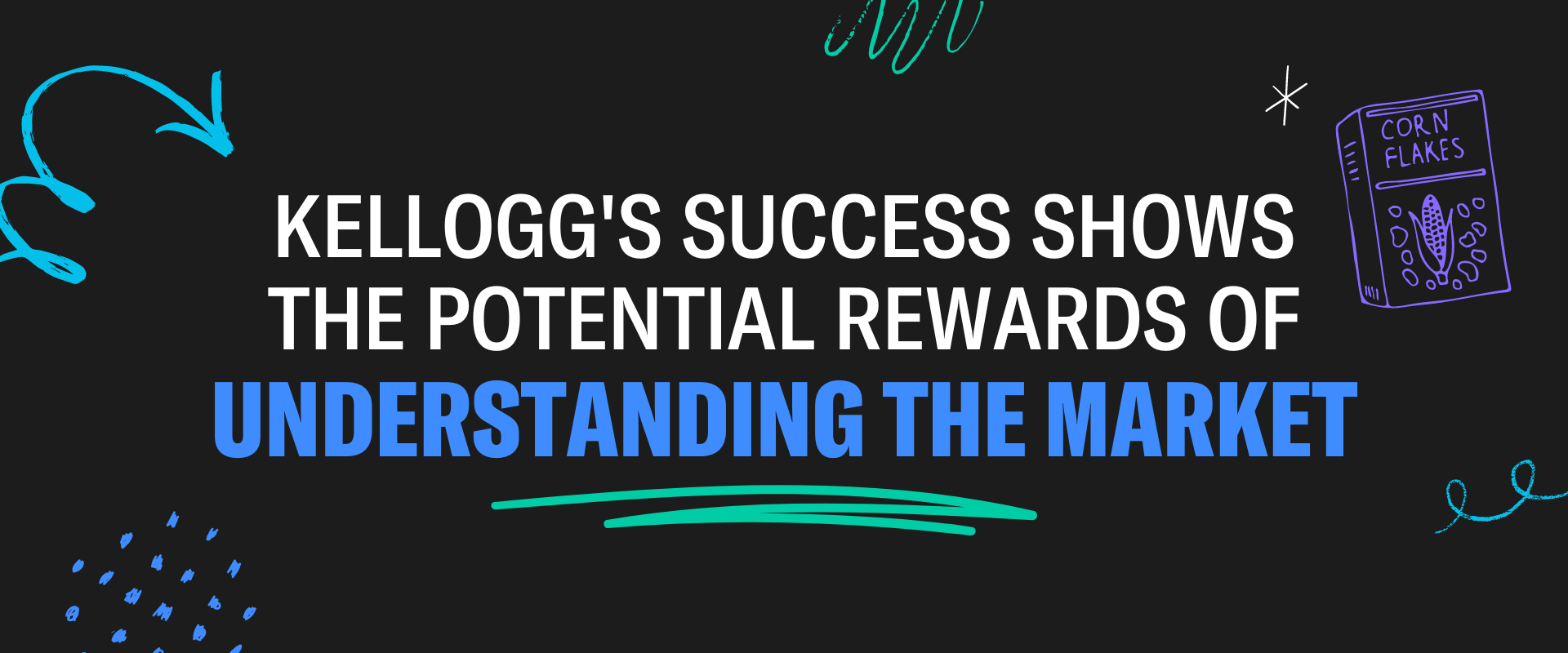As the new financial year has begun, it's a great time to take a look at how well your marketing plans are working. If you missed it on our socials, we recently shared a comprehensive checklist to help plan and implement a successful marketing strategy for the year. But even with our checklist, truly maximising the effectiveness of your marketing efforts requires a deep understanding of the market and how current events can impact your strategies.
In this article, we'll explore just how vital data and current affairs are for digital marketing strategies, look at historical examples of brands that thrived by investing during tough times, and share strategies for safeguarding your budgets when times are tough...
A Historical Perspective: Investing in a Recession
One striking example of a company benefiting from understanding the market during hard economic times is Kellogg's during the Great Depression. As described in this article from The New Yorker, when the Depression hit in the late 1920s, Kellogg's major competitor Post did what many companies understandably do - they cut expenses and reduced advertising spend. But Kellogg took a different approach - they actually doubled their advertising budget, pushed into radio ads, and heavily promoted their new cereal Rice Krispies.
This bold move paid off massively. Even as the economy was in bad shape, Kellogg's profits went up nearly 30% by 1933. They became the dominant player in the cereal market, a position they still hold today.

Kellogg's success shows the potential rewards of understanding the market and its implications on your marketing strategy. The same idea applies to digital marketing strategies today, especially as we are in a cost-of-living crisis. Maintaining or increasing ad spend, focusing on new channels, and launching innovative campaigns can drive brand awareness and market share gains that continue long after the downturn ends.
Just as Kellogg took advantage of lower ad costs and less noise to make their brand top-of-mind for consumers, digital marketers today can leverage opportunities in targeting, segmentation, and creative testing when competitors are scaling back spending and marketing budgets.
Measurable Data: The Key to Effective Decision-Making
Making decisions based on real data is extremely important for effective digital marketing. Data provides valuable insights into what customers want, how they behave, and how they interact with brands.
There are a few ways data can aid your digital marketing efforts:
Knowing Your Audience: Data allows you to build detailed profiles and personas of your customers. This helps you customise your advertising messaging for specific target groups, making your campaigns more personalised and engaging.
Evaluating performance: Data-driven marketing allows for real-time measurement of key performance indicators (KPIs) like return on investment (ROI), click-through rates (CTR), and conversion rates (CR). This data-based insight allows for quick optimisations to improve campaign effectiveness.
Predict The Future: Data isn't just about looking backwards - it can also help you predict future trends. Using machine learning and analytics, you can get a sense of how consumer behaviours might shift, allowing you to get ahead of the curve with proactive marketing strategies.
Personalisation: Beyond just using someone's first name, providing targeted content and recommendations tailored to an individual's past actions and preferences helps you build deeper connections with your audience.
Optimising Your Content: Data can be a game-changer when it comes to content optimisation. Analyse the performance of different formats and styles to figure out what resonates most with your customers. This insight will help you create content that delivers real results.
Without leaning on data, you're basically just guessing, and who wants to make important marketing calls based on a hunch? Data takes the guesswork out of it and lets you make informed, strategic decisions. Following a data-driven decision-making approach using the right technologies leads to more relevance for the audience, better results, efficient use of budgets, and the ability to continuously improve strategies over time.
Protecting Budgets in Turbulent Times
The economy has been a wild ride lately, with increased mortgages, taxes, price of goods... the list just goes on! Consumer budgets are spread very thin these days, and businesses are feeling the pinch. With all the ups and downs, it's no wonder companies are feeling a touch skittish and reaching for the budget-cutting scissors, and when they do let’s be honest, marketing is always the first to get cut.
But you know what they say - when times get tough, the tough get...smarter about their spending! The truth is, slashing your marketing budget might feel like a safe move in the short term, but it could actually do more harm than good for your business in the long run.

The data actually suggests that reducing advertising spend during a downturn is often a mistake, Kellogg’s is just one example. Sometimes it's wise to maintain or even increase your ad spend since your brand can really stand out when there's less noise from your competitors.
Instead of making across-the-board cuts, a better approach is to manage your budget with flexibility and agility. Empower your marketing team to adopt more of an investor mindset - eliminate the inefficient stuff and double down on the high-growth areas. That way, you're not just weathering the storm, but actually setting yourself up to come out of it even stronger.
And don't forget the power of data and analytics. By stress-testing your budget against different economic scenarios, you can gain the foresight to make smart, strategic cuts in the right places. That means you can continue investing in the marketing initiatives that are most likely to deliver a solid return, even when times are tight.
The bottom line is, a growth-minded, data-driven approach to budget management can help shield your marketing efforts from economic turbulence. By blending flexibility, agility, and insight, you can protect your resources and maximise your impact, no matter what challenges arise.
To wrap it all up
Data and current market insights are essential for crafting effective digital marketing strategies, especially in rough economic times. Companies that understand their audience, leverage data-driven insights, and maintain a growth-oriented mindset are often the ones that come out ahead, even when the broader economy is facing hard times.
By protecting marketing budgets through strategic, data-driven decisions, businesses can shield their most important growth engines from economic uncertainty. And when the good times return, those who stayed the course will be poised to surge ahead of the competition.
So as the financial landscape continues to shift, remember - tough times don't last, but tough, data-driven marketers do. Stay agile, stay focused on your customers, and keep making smart, insights-driven decisions. With the right approach, you can weather any storm and emerge stronger than ever.

April 10, 2024